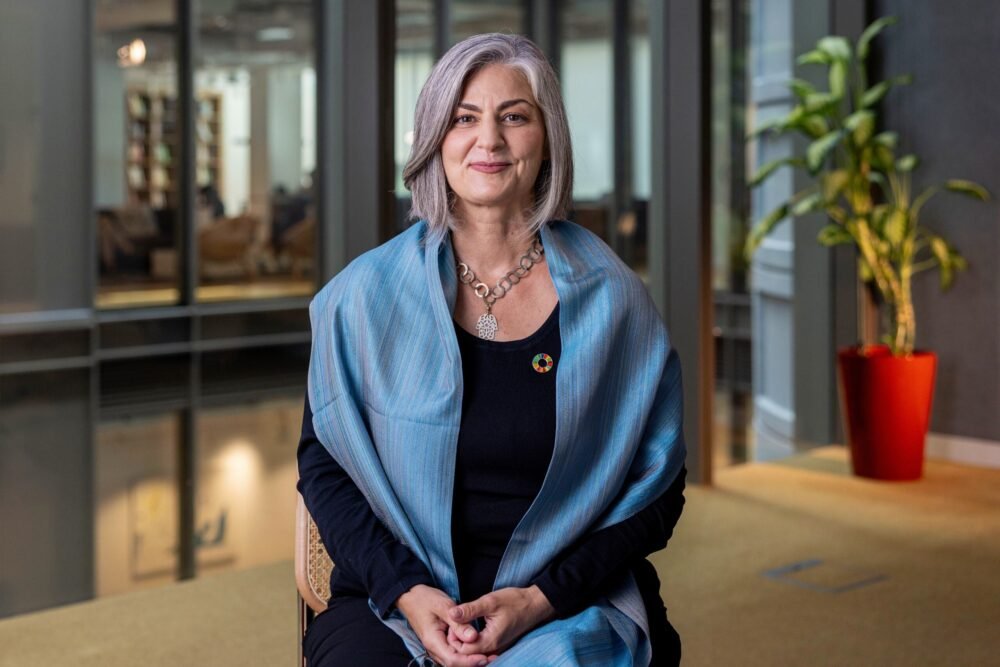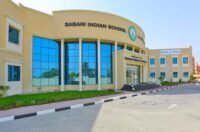As the CEO of the Abdulla Al Ghurair Foundation, Dr. Sonia Ben Jaafar is driving efforts to bridge the gap between education and workforce demands in the region. In this interview, she discusses the Foundation’s initiatives, the challenges facing Arab youth and the role of innovation in shaping the future of education
For the past decade, the Abdulla Al Ghurair Foundation (AGF) has been at the forefront of efforts to bring meaningful changes to education and workforce readiness in the region. From initiatives that bridge the gap between academia and industry to forging strategic partnerships that drive innovation, AGF has played a critical role in equipping Arab youth with the skills needed for a rapidly evolving job market.
At the helm of this mission is Dr. Sonia Ben Jaafar, the CEO of the Foundation. She is recognised for her work in transforming education systems to better prepare youth for economic success. Under her leadership, the Foundation has expanded its reach, working closely with governments, NGOs, international organisations and private sector stakeholders to create sustainable impact.
In this exclusive interview, Dr. Ben Jaafar reflects on the Foundation’s journey, the challenges facing the region’s youth and the trends shaping the future of education.
The Abdullah Al Ghurair Foundation has been a key player in advancing education and workforce readiness in the region. Can you tell us about your current initiatives in the GCC?
The current initiatives of the Abdullah Al Ghurair Foundation prioritise expanding access to high-quality education and training to better meet the demands of the future of work. Through partnerships with leading institutions, we deliver education that is both accessible and strategically aligned with emerging needs.
We cultivate practical collaborations between academia and industry, and in doing so, we are building a pipeline of skilled talent to fuel economic growth and innovation across the region. Ultimately, our commitment to innovations and transformation in education is about helping to shape a future where every young person can succeed and contribute meaningfully to their community’s prosperity.
What are the key gaps or challenges facing Arab youth that the Foundation is working to address through its education initiatives and partnerships?
The pace of change is unlike anything we’ve seen before, and the future of work is evolving in ways that are increasingly unpredictable. This uncertainty can be unsettling for young people who often feel unprepared and unsure of what lies ahead.
That’s why collaboration is key; we must work together to ensure that education and the workforce evolve hand in hand, shaping higher education into something that is future-ready, purpose-driven, and, most importantly, reassuring for the next generation.
How are the Foundation’s initiatives addressing the evolving needs of educators in the region?
At AGF, we operate as a strategic philanthropy, allowing us to be both agile and impactful. We bring together global and local experts, engaging stakeholders across the public, private and non-profit sectors, as well as government entities.
By pairing this approach with academia, we create powerful collaborations that strengthen education systems. Our goal is to work with institutions to elevate the entire ecosystem, making it more resilient, responsive and ultimately, more beneficial for young people.
Looking back at the Foundation’s 10-year journey, what have been some of its biggest accomplishments?
This journey exemplifies the UAE’s distinctive approach to philanthropy—one that’s strategic, collaborative and forward-thinking. Our work not only addresses today’s educational challenges but also anticipates the needs of tomorrow, ensuring a legacy of sustainable change for generations to come.
In reflecting on these accomplishments, I see a decade of impact driven by a clear mission: to empower young people through education. And as we look ahead, we remain committed to pushing boundaries and shaping a brighter future for the region.
Can you tell us about your journey with the Foundation? What have been some of the most defining moments along the way?
What stands out to me most is our ability to be agile and adapt. Since AGF’s inception, we have continuously evolved, expanding from individual support to institutional and network-based solutions.
We’ve learned to pivot quickly in times of crisis, like the pandemic, by working with partners in a way that is both strategic and deeply authentic. What drives us is not just the effort we put in, but the lasting impact we create. It has been a privilege to work alongside those who share this commitment to meaningful, sustainable change—a vision championed by Their Excellencies Abdulla Al Ghurair and Abdul Aziz Al Ghurair.
How does equitable access to quality education in the GCC compare to other parts of the world, and what do you see as the key challenges that still need to be overcome in the region?
Equitable access to quality education in the GCC is improving, but higher education must go beyond access—it must drive opportunity, innovation and economic growth. The key challenge is bridging the gap between academia and industry to ensure students graduate with the skills needed for the future workforce.
Digital transformation is another critical factor; while the region has made strides in integrating technology, we must continue to expand its reach to all learners. Ultimately, ensuring that every student, regardless of background, has access to future-ready education will shape a more inclusive and dynamic future for the region.
What are some of the key trends in education that you believe will have the greatest impact on the future of youth?
A key trend that continues to emerge is the growing role of technology, particularly AI, in education. While AI is taking root, we are also seeing a greater appreciation for the human-centric element in learning. Striking the right balance is crucial, even as the future remains uncertain.
What I do know is that with the right partnerships and a shared vision for equitable, high-quality education that aligns with the future of work and sustainable development, we can co-create a purposeful path forward.








